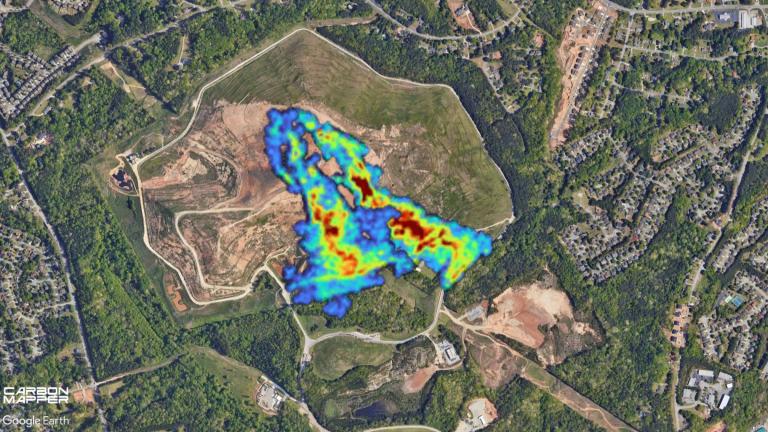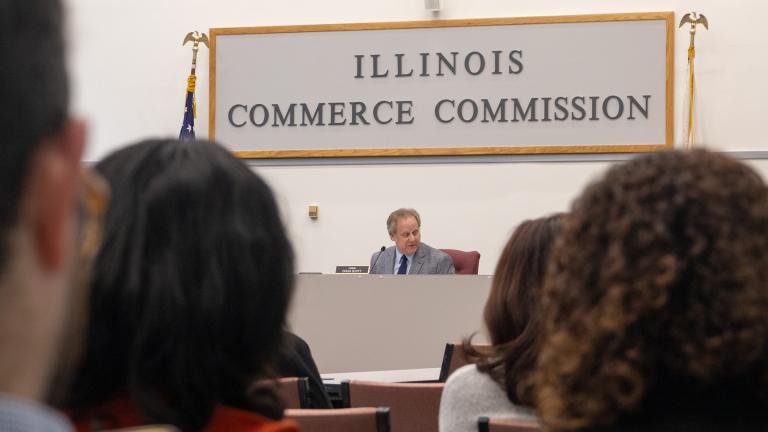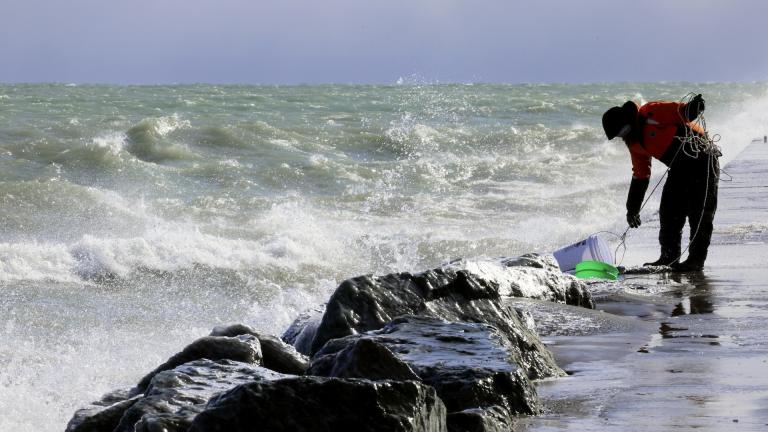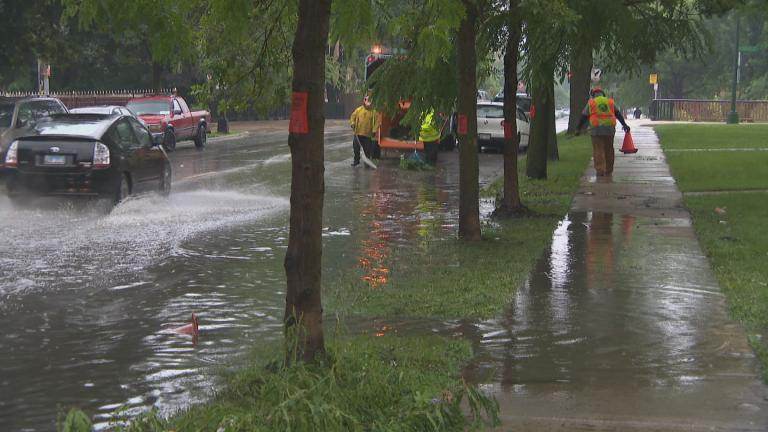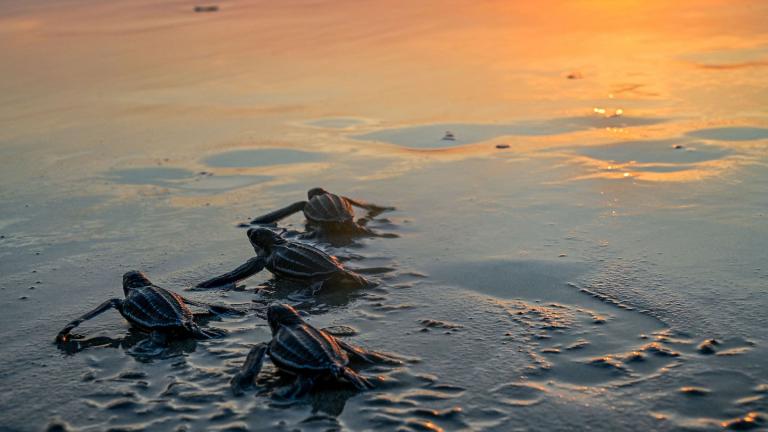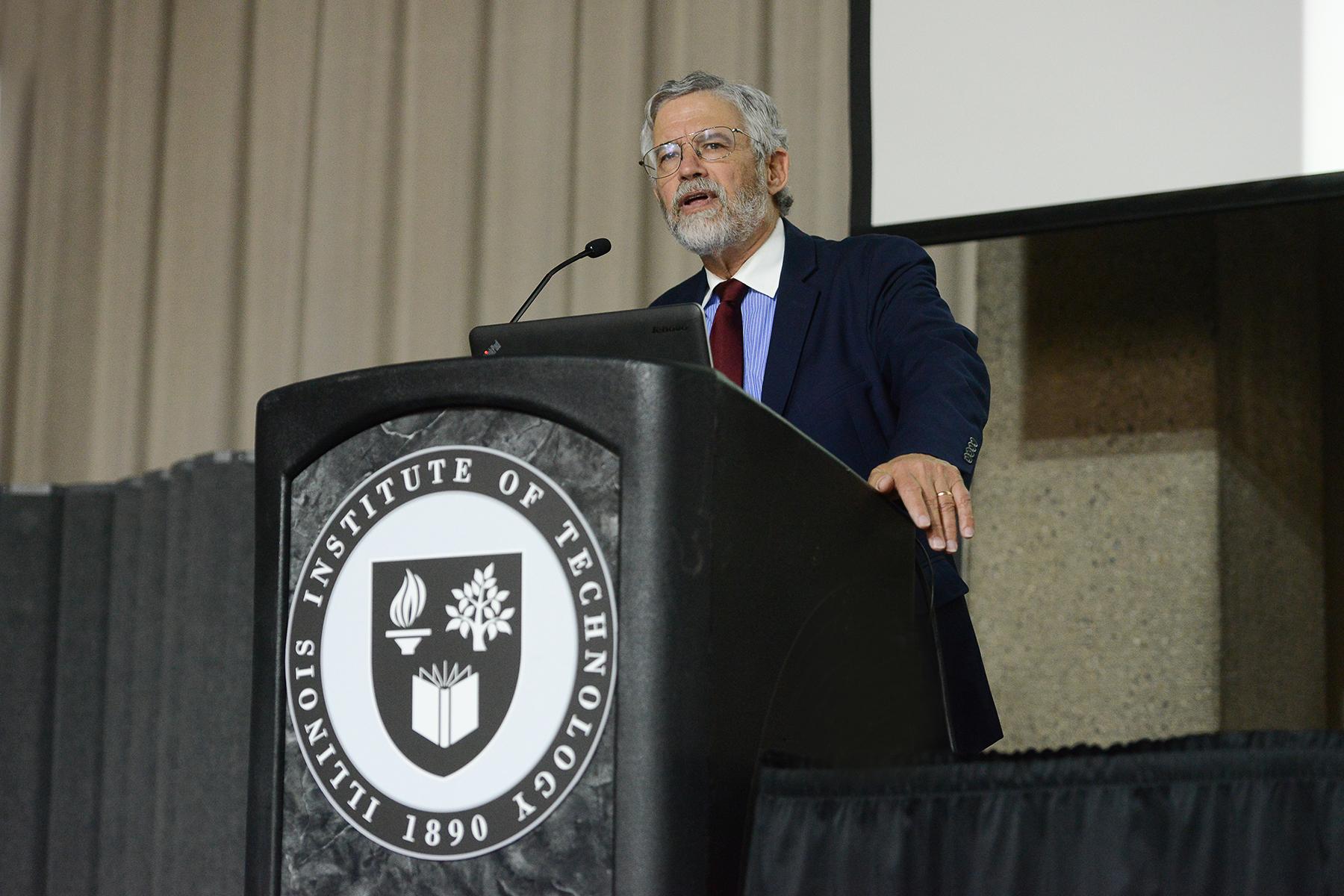 John P. Holdren, President Barack Obama’s science and technology adviser from 2009-2017, gives a lecture on climate change Oct. 19 at the Illinois Institute of Technology. (Bonnie Robinson / Illinois Institute of Technology)
John P. Holdren, President Barack Obama’s science and technology adviser from 2009-2017, gives a lecture on climate change Oct. 19 at the Illinois Institute of Technology. (Bonnie Robinson / Illinois Institute of Technology)
The Trump White House still does not have a John P. Holdren, and there’s little indication it will have one any time soon.
From 2009 to 2017, Holdren served as President Barack Obama’s science and technology adviser, guiding the president on the scientific, engineering and technological aspects of topics ranging from national security to the environment.
Holdren, who was in Chicago last week to deliver a lecture on climate change, became the longest-serving science adviser in the history of the position, which dates to World War II. That accomplishment can in part be attributed to Obama, who did more to combat climate change than any U.S. president and is considered one of the most science-savvy presidents in history.
President Donald Trump, meanwhile, is not on such a trajectory. In addition to taking longer than any president to nominate someone as science adviser – as of Monday, Trump had yet to name a potential successor to Holdren – Trump has also allowed the once robust White House Office of Science and Technology Policy, or OSTP, to wither.
“When I left, we had 135 [staff],” Holdren told Chicago Tonight after speaking before hundreds of faculty and students at the Illinois Institute of Technology on Oct. 19. “Thirty stayed. Half are left.”
While the Trump administration has added some of its own staff, it’s unclear how many people currently work at OSTP. Last month, an OSTP official told Wired that the office was down to 42 staff, compared to the 135 at the end of the Obama administration.
Holdren, who also served as the Senate-confirmed director of the OSTP under Obama, said he remains in contact with former staff, including some who still work in the office. He said he was pleased to hear from a current OSTP staff member who recently attended a climate conference. But Holdren said he was hesitant to share details out of fear that the person could face retribution from Trump officials if the trip had been unauthorized.
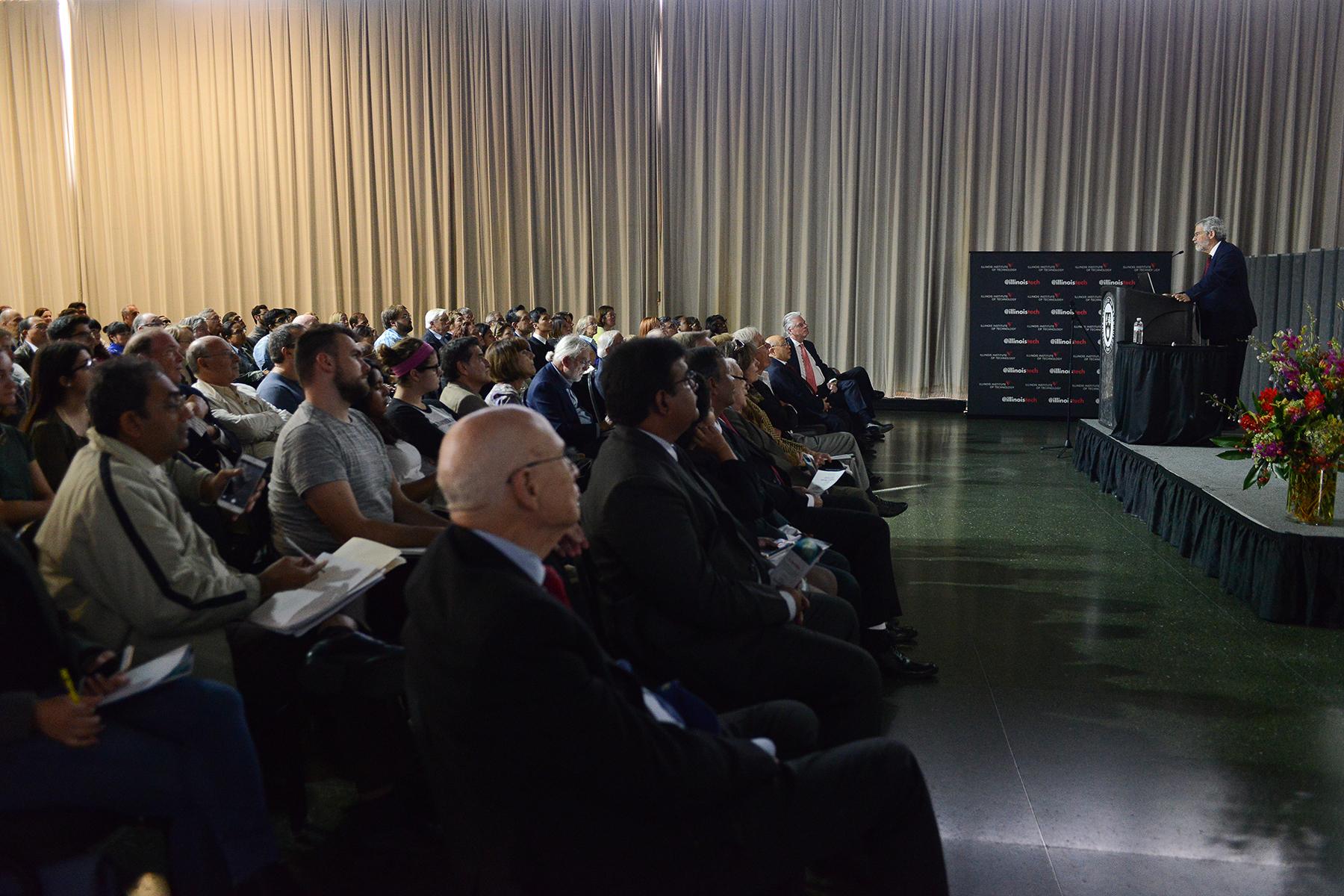 Former Obama science adviser John P. Holdren speaks before students and faculty at the Illinois Institute of Technology on Oct. 19. (Bonnie Robinson / Illinois Institute of Technology)
Former Obama science adviser John P. Holdren speaks before students and faculty at the Illinois Institute of Technology on Oct. 19. (Bonnie Robinson / Illinois Institute of Technology)
In general, however, Holdren has encouraged scientists to speak out about their work, a message he returned to throughout his lecture.
“Don’t be discouraged. Keep doing your work,” said Holdren, now a professor of environmental policy at the Harvard Kennedy School of Government. “We should all keep doing our work. Keep talking about the results and their implications. Do not be intimidated by what seems to be a political climate of opposition to facts. Facts remain important, and the science and technology community continues to need to speak truth to power.”
Holdren’s visit was part of the IIT Armour College of Engineering Darsh T. Wasan lecture series, established in 2008 to bring top international leaders to speak on topics of global concern.
Below: more highlights from Holdren’s lecture, titled, “Global Climate Change and U.S. Interests: What We Know. What We Expect. What We Should Do.”
![]()
On what led to the passage of significant environmental legislation in the 1970s:
“A lot of what caused the tipping point was extremely dirty air in many American cities and extreme water pollution, including rivers burning because they were so polluted, air so polluted in Los Angeles – I lived there in the early 1970s; you couldn’t go out to the track and run. You started choking if you started to run; you felt the tightness in your chest. People all over America were experiencing that dirty air and dirty water. That’s what they understood environment to mean. And so we passed the Clean Air Act, the Clean Water Act, the Council of Environmental Quality, the [Environmental Protection Agency], the national Environmental Protection Act.”
On what could cause another tipping point:
“If you ask what’s going to do that today, what I think is doing it is the increasing conspicuousness of impacts of climate change in people’s everyday lives. More and more people are experiencing the torrential downpours, the floods – the likes of which they’ve never experienced before – the heat waves, the frequency of the most powerful storms.
“As people make the connection – and we could use some more help from television meteorologists in making those connections – but as people make those connections, they see it happening around them, they see it happening on their TV.”
On Americans’ views on climate change:
“We already have 70 percent of the American public who believe that climate change is real, humans have something to do with it, we should be taking action against it. But they rank it very low on the list of their priorities. In 2010, they ranked it No. 18. If you asked them, ‘What keeps you up at night? What are you worried about?’ they were worried about their jobs, the economy, their kids’ college education, their health, their retirement, whether we’re going to go to war.
“It’s now up to No. 7. If we can get it to No. 1, 2 or 3, people will start voting on the basis of whether the candidates are taking a sensible position on climate change. I think we’ll get there.”
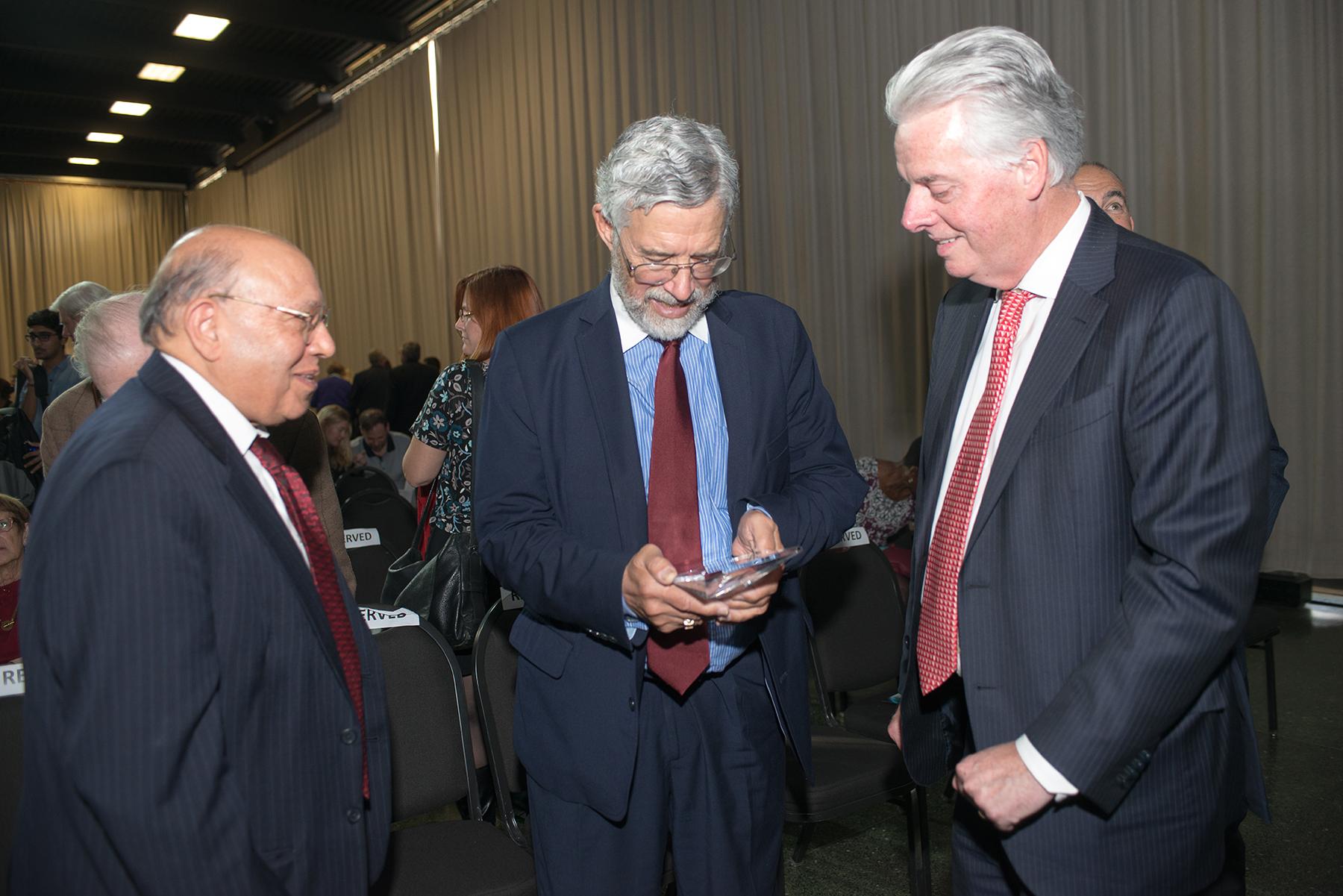 John P. Holdren, center, receives an award Oct. 19 from Illinois Institute of Technology Vice President for International Affairs Darsh Wasan, left, and IIT President Alan Cramb, right. (Bonnie Robinson / Illinois Institute of Technology)
John P. Holdren, center, receives an award Oct. 19 from Illinois Institute of Technology Vice President for International Affairs Darsh Wasan, left, and IIT President Alan Cramb, right. (Bonnie Robinson / Illinois Institute of Technology)
On Trump’s agenda for science-based agencies and programs:
“I quote here Trump director of White House Office of Management and Budget [Mick Mulvaney], who said, ‘We’re not spending money on [climate change] any more. We consider that to be a waste of [taxpayer] money.’
“So what Trump is doing and proposing so far: He’s appointed climate contrarians to key posts, to the head of the EPA, to the Office of Management and Budget, to the Department of the Interior. He’s proposed drastic cuts in budget and authority for the EPA. He is cutting or proposing to cut climate change monitoring and analysis … Big cuts proposed to energy research and development at the Department of Energy … Rolling back or re-examining all of President Obama’s executive orders on climate change, the Clean Power Plan, the methane strategy, the inclusion of climate change in environmental impact assessments under the national Environmental Protection Act … Cutting back U.S. support for [climate] adaptation and resilience, both at home and abroad.”
On how the science community should respond to anti-science attitudes from within the government:
“We need to get better at explaining the science to laypeople – not just what we know and why it matters, but how we know it. People need to understand that one single contrary publication or blog post is not going to overturn 200 years of climate science.
“I think everybody in the science and technology community should be tithing 10 percent of our time to public and policymaker education and to policy and political activism, providing citizens and legislators with the knowledge they need to defend respect for science in policy making.”
Contact Alex Ruppenthal: @arupp | [email protected] | (773) 509-5623
Related stories:
 Obama Science Adviser to Give Lecture on Climate Change
Obama Science Adviser to Give Lecture on Climate Change
Oct. 16: President Barack Obama’s science and technology adviser will deliver a lecture on climate change this week in Chicago. John P. Holdren was the longest-serving science adviser in the history of the position.
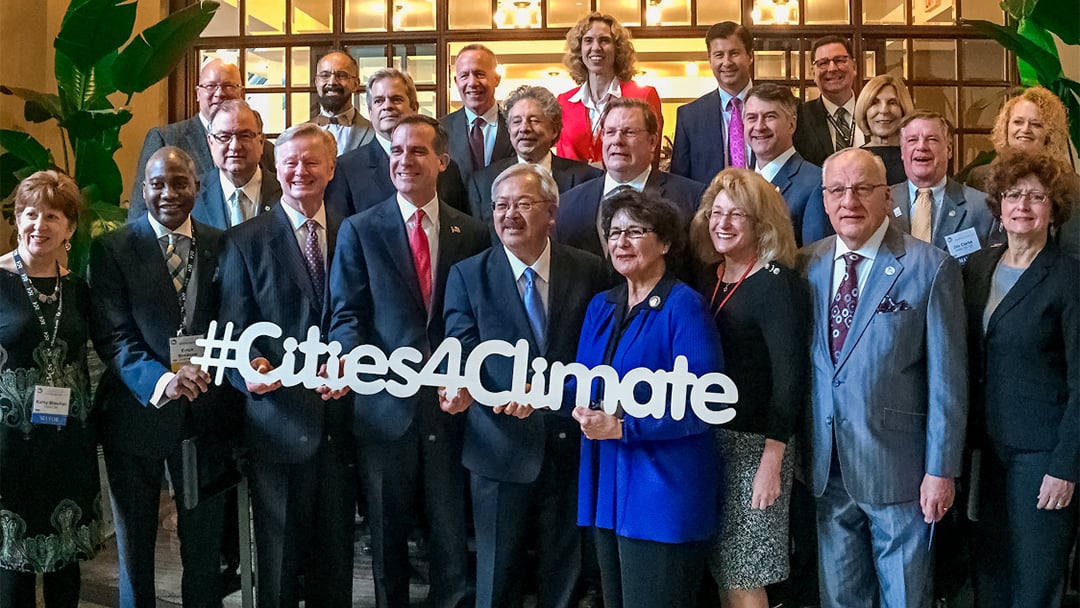 Chicago Among 211 Cities Pledging to Uphold Paris Climate Agreement
Chicago Among 211 Cities Pledging to Uphold Paris Climate Agreement
June 5: Chicago, Pittsburgh and dozens of other U.S. cities are standing by Paris despite President Donald Trump’s announcement last week that he will withdraw the U.S. from the landmark climate change agreement.
 Chicago Reaction to Trump Withdrawing US From Paris Climate Agreement
Chicago Reaction to Trump Withdrawing US From Paris Climate Agreement
June 1: Chicago elected officials and environmental leaders react to President Trump's decision to withdraw the U.S. from the Paris climate accord.

